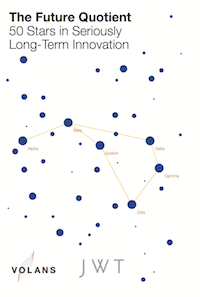Creating systematic change to provide a common language and standard in a fast developing world requires leadership and innovation.

One computer is fun, two computers are interesting, a million inter-connected computers is a revolution - the internet. The ability to communicate in clearly understood, standard terms is the key to unlocking the power of networks. And there is no network bigger or more powerful than the global system. This mega-system can be thought of as the global business system embedded in our planetary ecosystem, in our social systems and in our regulatory systems. In order for this system of systems to communicate and learn and to tap into the power of business to reverse the trend of worsening impacts on our climate, a common language is key.
But developing this common language is a grimy thankless task. Who would take this on, working long hours with no recognition deep in the trenches of definitions, principles and logic, bombarded by the criticisms of the status quo, the negativity of those who don’t believe change is possible? 'Revolutionary bureaucrats', that's who. That's the term Thomas Friedman (Hot, Flat and Crowded) uses to describe those brave souls who commit themselves to the work of redesigning the standards which allow the diverse members of a complex system to connect with each other.
This is courageous work, requiring individuals to think and act in terms of time-scales way beyond the normal horizon of most people. Why do they do so? Because they believe in the value of this work, in the need for it to address problems and/or unleash untapped potentiality. And because they know they have the deep skills which others lack and because they feel that in some sense this work is their duty, the culmination of all their years of experience. This requires a special type of leadership, what Peter Senge (The Fifth Discipline, The Necessary Revolution, Presence) calls 'leading from the future'.

So it should be no surprise that JWT and John Elkington's Volans team have identified CDSB as one of their '50 stars in seriously long-term innovation' in their recent Future Quotient report. The report outlines the ‘7C’s’ – the qualities of those leaders and organisations possessing superior ‘future quotient’, analogous to the familiar ideas of IQ or EQ. The CDSB Technical Working Group embody many of these qualities but I would draw attention in particular to their willingness to challenge the status quo, their curiosity, their incredible collaboration, their courage and their creativity.
Five years into its work, the CDSB stands on the verge of catalysing enormous systemic change. It is testimony to the long-term thinking of all involved that they still feel they have so far to go. I applaud their serious long-term leadership from the future and am delighted that they have received this recognition for their work.
Volans' report can be found here. Nigel Topping is Chief Innovation Officer of the Carbon Disclosure Project.